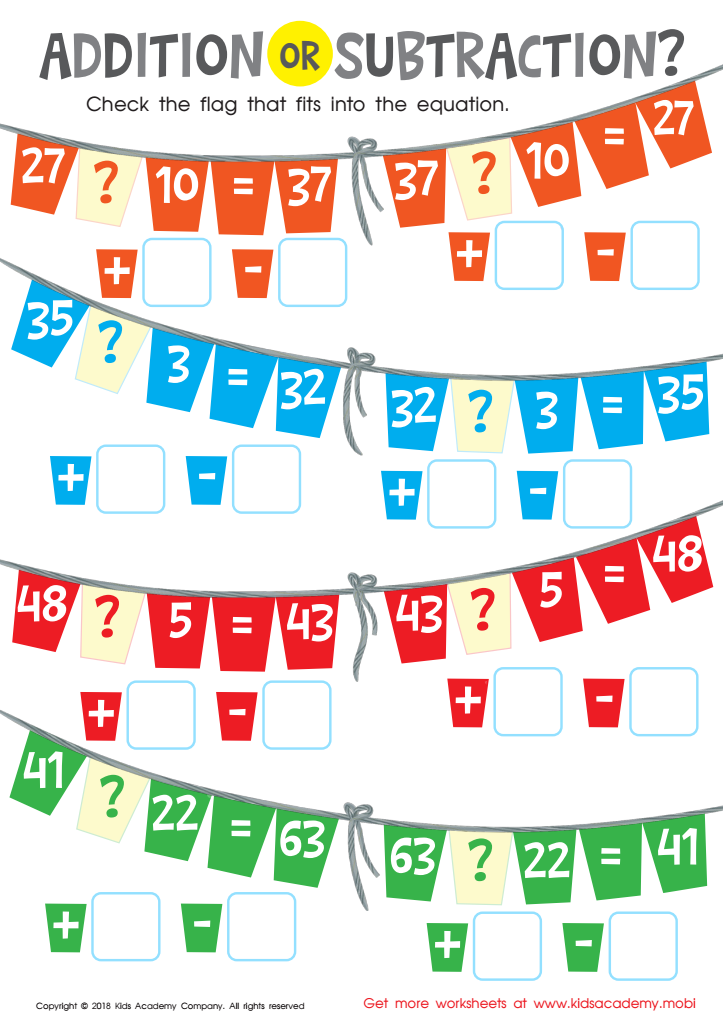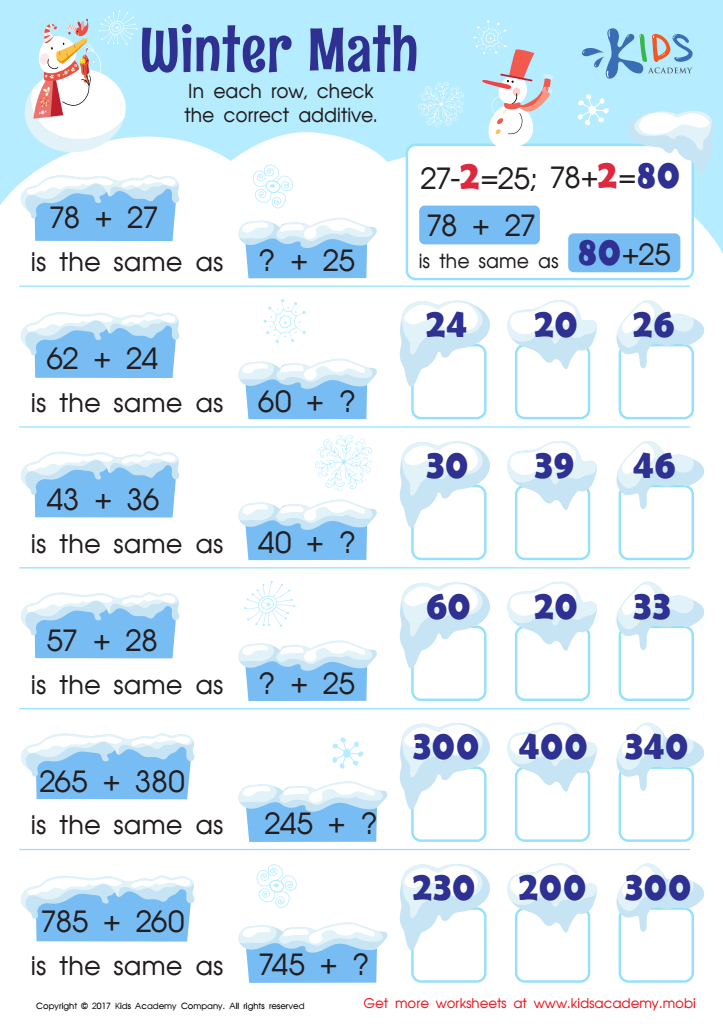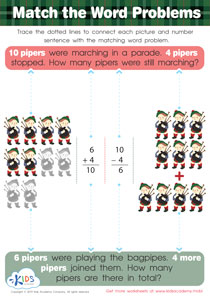Mathematical reasoning Normal Addition Worksheets for Ages 3-8
4 filtered results
-
From - To
Enhance your child's mathematical reasoning with our engaging Normal Addition Worksheets, designed for ages 3-8! Perfect for young learners, these worksheets focus on developing foundational addition skills through fun, interactive exercises. With vibrant illustrations and age-appropriate challenges, children will foster their understanding of basic addition while improving critical thinking and problem-solving abilities. Our carefully crafted worksheets ensure that kids not only practice addition but also develop their reasoning skills in a playful environment. Whether used at home or in the classroom, these resources promise to make learning math exciting and effective. Start building confidence in math today!


Tricky Problems Worksheet: Part 1


7 Continents and 7 Seas Worksheet


Addition or Subtraction? Worksheet


Free Addition Worksheet
Mathematical reasoning in early childhood, particularly regarding normal addition, is crucial for several reasons. First, this foundational skill fosters critical thinking and problem-solving abilities. By grasping the concept of addition, children learn to analyze relationships between numbers, an essential step in their cognitive development.
Engaging with normal addition also lays the groundwork for more complex mathematical concepts, such as subtraction, multiplication, and division. Understanding these foundational principles enables children to tackle mathematics with confidence as they progress through their education. Furthermore, mastering addition helps improve their overall academic performance, as math skills are integral across disciplines.
For parents and teachers, introducing and nurturing mathematical reasoning can also enhance a child's enjoyment and appreciation of math. Fun activities that involve addition, such as counting objects or simple games, make learning engaging and reinforce a positive relationship with mathematics.
Moreover, developing a solid base in mathematical reasoning supports lifelong skills such as budgeting and problem-solving beyond the classroom. By investing time in cultivating these abilities early on, parents and teachers can ensure that children are well-equipped to face mathematical challenges in later years, fostering both academic success and real-world competency.
 Assign to My Students
Assign to My Students








.jpg)












